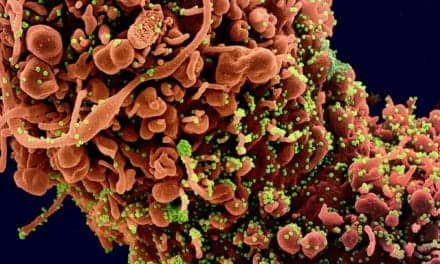Potential drug and vaccine strategies could target crucial glycan to fight pertussis.
Researchers have identified a new complex-carbohydrate biomolecule, or glycan, that plays a key role in the nasal colonization of the Bordetella bacteria responsible for pertussis. They say the discovery could make it possible to create a new drug or vaccine that interferes with the glycan to greatly reduce or even stop ongoing Bordetella transmission.
Bordetella pertussis is the cause of the respiratory infection pertussis, which is widely known as whooping cough. Today’s pertussis vaccines keep people from getting severely sick, but they don’t eliminate the bacteria because it excels at colonizing, growing, and persisting inside the nose. This means that despite more than 99% of people being vaccinated in the US, whooping cough continues to spread, leading to infections among vulnerable populations, particularly infants and elderly people.
“Our newly discovered glycan is crucial for the bacteria to maintain its ability to efficiently colonize the nose and transmit to a new host,” says Yang Su, a doctoral candidate in the department of biochemistry and molecular biology at the University of Georgia who led the research, in a release. “By understanding the biochemical and molecular function of genes and enzymes involved in its formation, we can now intervene in the production of this glycan.”
Su will present the research at Discover BMB, the annual meeting of the American Society for Biochemistry and Molecular Biology, which will be held March 23–26 in San Antonio, Texas.
“My multidisciplinary approach integrates enzymology, glycan structural analyses, genetics, airway cell models, and mouse infection models,” says Su in a release. “To my knowledge, this is the first report of a glycan that is significant for the early colonization in the nose of its host.”
Glycans are biomolecules made of chains of carbohydrates such as polysaccharides. They are essential in various biological processes, including cell–cell recognition, signaling, and immune response modulation.
In a previous study, the researchers discovered that a glycan known as transmission extracellular polysaccharide (tEPS) was required for Bordetella to spread among hosts. They then discovered that the production of tEPS glycan was related to another group of genes. The investigators suspected that this new group of genes likely produced another glycan, but nothing was known about its function or structure.
In the new work, the researchers eliminated the genes that expressed this unknown glycan from bacteria to see if they could uncover its function. The resulting Bordetella mutant showed a 70% reduction in its ability to colonize the nose of mice within six hours of inoculation. The mutant also showed a significantly reduced ability to transmit from the original host to a new host.
The researchers discovered that this new glycan, which they named bordetellea colonization oligosaccharide, or b-Cool, is found in multiple Bordetella species, including those infecting dogs and other animals, as well as in strains of Bordetella pertussis isolated from patients. This suggests that targeting b-Cool could lead to the development of vaccines and medications that would be effective against both animal and human infections.
The researchers are now working to understand how b-Cool mediates Bordetella colonization in the nose, information that will help develop therapeutics that interfere with colonization. They are also developing a vaccine that targets the b-Cool glycan, which they plan to test in various hosts.
Photo 113232834 © Kateryna Kon | Dreamstime.com










